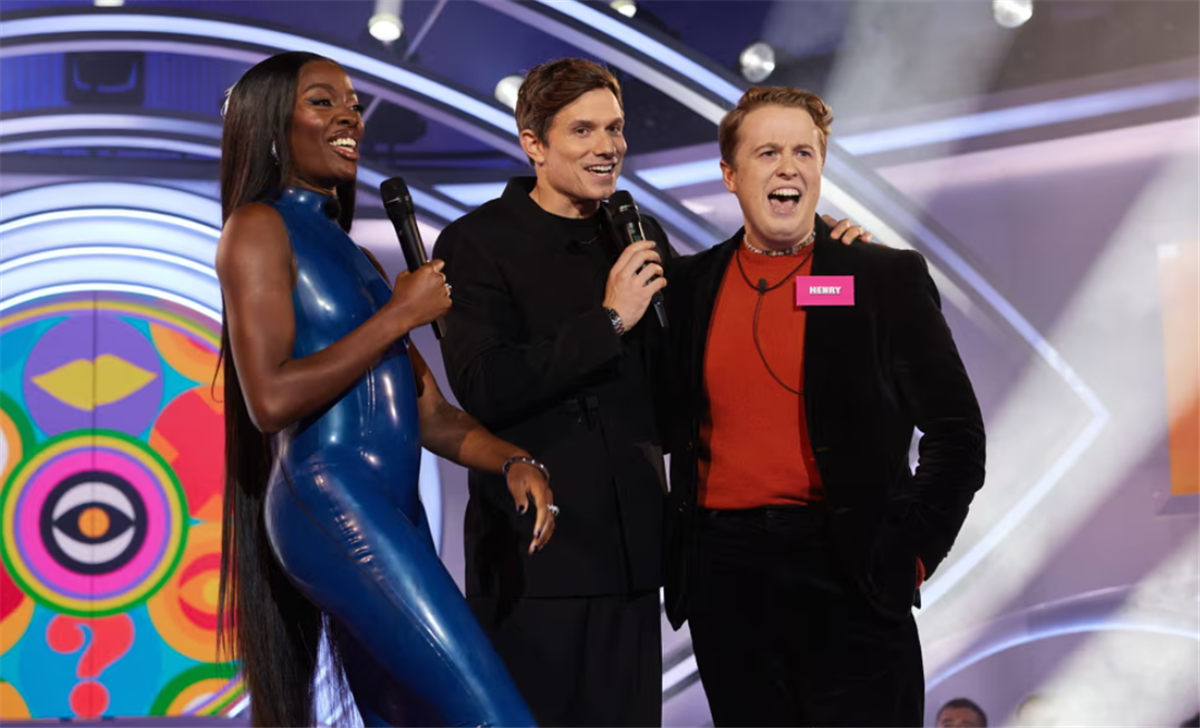Big Brother can claim to be the parent of modern reality shows. It started in 2000, suitably dystopian as we looked into the black mirror of an intimidating new millennium – and dozens of other brutish, tacky and vaguely exploitative contrivances followed in its wake. Two decades later, though, it’s a heritage format. Big Brother was canned by Channel 4 in 2010, then cancelled again by Channel 5 in 2018, supposedly due to low ratings. If you’re not rating highly enough to survive on Channel 5, your brand is at rock bottom.
In the ad breaks of the first episode of the latest revival, as it lands on ITV, there are trailers for a new show hosted by original Big Brother presenter Davina McCall. In My Mum Your Dad, people live together in a house, but they’re single parents hooking up with each other under the secret supervision of their adult children. It’s high-concept; the whole genre has evolved.
So what sort of person applies for bog-standard Big Brother in 2023? Narrating a montage of the British every day that sets the scene, the unseen controller of the game, Big Brother himself, says it is people from “all walks of life”.
Sort of. The new Big Brother admirably tries to create a cross-section of society, while being unable to escape the fact that 99.9% of that society would rather clean their teeth with an angle-grinder than appear on Big Brother. The new show has found a diverse, faultlessly representative sample of Britain’s squawking self-publicists.
On Big Brother’s new exterior set – a silver phallus that seems to shoot spurts of neon into the permanently ecstatic audience – are presenters AJ Odudu and Will Best, both shiny (Odudu’s buffed PVC catsuit; Best’s teeth) and smooth as they usher a cavalcade of exhausting strangers into the house.
Jenkin, a barman/bingo caller from Bridgend, sets the tone by screaming as he ascends the short staircase to the limelight. “Aaaaaaaaaaagh!” he says as the sliding doors close to shut him inside the house. “Am I first? Yeeeeeeeaaaah!” he bellows as he realises nobody else is in there yet.

Best only waits until the second contestant intro before rolling out McCall’s old catchphrase. “As a wise woman once said,” he says, “Fancy another one?” Davina used to say that to herald a surprise eviction when the series had reached a peak of baying, judgmental frenzy, rather than teeing up the second person to appear in the first episode, but no matter. Farida, 50, a makeup artist from Wolverhampton, is in. Who’s supporting her, Best asks? “All the people who have known me all my life!”
Any awkwardness caused by Farina speculating that the audibly very Welsh Jenkin is either Scottish or Irish is soon dissipated by the quick arrival of 21-year-old Somerset butcher Tom (“I don’t like the feeling of raw meat”), 18-year-old London youth worker Hallie (“I bark at men when they catcall me, because you’re behaving like a dog so you’ll be treated like one”), and 33-year-old Luton mum Trish (“I’m very very left-wing. I’m a massive feminist, I hate the Tories … I’m amazing”).
Glory-days Big Brother used to broadcast its launch show live, but this one’s pre-recorded. The classic limousine arrival seems to have been downgraded to a family saloon, with a bizarre use of slow-motion accentuating every bounce and gurn as the latest exhibit exits the vehicle and adjusts to the roar of the crowd. Among the others to be unleashed are a model, a DJ, last year’s Miss Universe Great Britain, and a geriatric doctor from the Isle of Man who advocates for the benefits of “ecstatic dancing”.
Once all of them have gathered on the famous ring-shaped sofa, conflict arises during a game of pass the parcel – Big Brother having chosen an old-school kids’ party theme. Olivia, a 23-year-old Glaswegian dancer with a fear of jam, is nominated by parcel-unwrapper Jenkin as the housemate it would be most difficult to live with, a question he can’t fairly answer since he’s only just met everyone. Olivia’s forfeit is to be automatically nominated for eviction this Friday; Jenkin’s punishment is that Olivia is salty with him for the rest of the evening.
In the ensuing strife, cliques start to form, although they’re not always the result of producer manipulation designed to sow division: Cotswolds food writer Henry and Scunthorpe lawyer Jordan, both 25, form a socially inept gang of two, based on them both having turned up in velvet jackets. It’s a handy signifier that they’re the token posh people, although whereas Henry went to boarding school and laments the house’s lack of a matron, Jordan admits his plumminess is an affectation, inspired by watching Downton Abbey.
Everyone’s different, but everyone’s still a textbook reality-show eccentric. It feels like we’ve known them for too long already.
